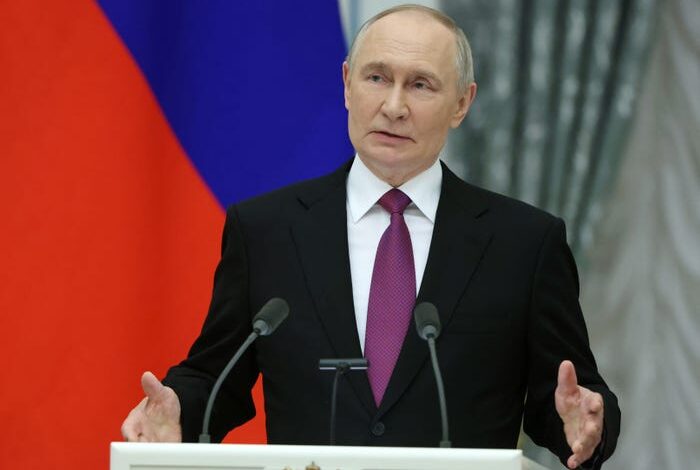Russia’s Oil Revenues Plummet 27% Amid New US Sanctions

UPDATE: Russia’s vital oil and gas revenues have plunged by 27% in October 2025, just as new US sanctions tighten their grip on Moscow’s energy sector. This steep decline, reported by the Russian Finance Ministry, marks a critical blow to the Kremlin’s wartime finances amid ongoing pressures from the West.
In October, Russia collected 888.6 billion rubles (approximately $10.9 billion) in oil and gas taxes, down from about 1.2 trillion rubles in the same month last year. This dramatic drop comes as crude prices remain weak and the ruble strengthens, further complicating Russia’s economic landscape.
As of October 2025, total oil and gas revenues for the year have reached 7.5 trillion rubles, a decline of 2 trillion rubles (or 21%) compared to the same period in 2024. The latest sanctions from the US Treasury Department, which target the financial arms of major oil companies like Rosneft and Lukoil, are set to exacerbate this financial strain. These firms are responsible for nearly 3 million barrels per day, accounting for almost half of Russia’s seaborne oil exports.
Despite initial fears that the sanctions might disrupt global supply and spike prices, markets have remained largely unaffected. Current prices for US West Texas Intermediate crude hover around $60 per barrel, while Brent crude stands at $64—both down approximately 15% this year due to abundant supply and sluggish demand.
Experts are warning that the impact of the sanctions is less about supply shortages and more related to pricing. Warren Patterson, head of commodities strategy at ING, noted that the market does not anticipate significant lost supply. However, as Russia reroutes crude through a “shadow fleet” and non-Western insurance, buyers may face increasing compliance risks under these sanctions.
According to Bridget Payne, head of energy forecasting at Oxford Economics, the additional costs for insurance and financing create a sanctions premium on Russian crude. This premium could widen the discount that Russia must offer to international buyers, ultimately impacting its net revenue.
As the Russian economy struggles, growth slowed to 0.6% year-on-year in the third quarter, down from 1.1% in the second quarter. This slowdown follows a wartime economic boost driven by defense spending and government subsidies.
The Kremlin faces mounting fiscal pressure as it navigates these new sanctions. Washington continues to seek diplomatic avenues regarding Ukraine while maintaining a strategy to keep energy prices low and inflation in check.
In a related note, former President Donald Trump expressed growing frustration with the lack of progress in talks with President Vladimir Putin, stating, “Every time I speak to Vladimir, I have good conversations, and then they don’t go anywhere.”
As these developments unfold, the implications for Russia’s economy and the global energy market remain significant. Monitoring the effects of the latest sanctions and their influence on energy prices will be crucial in the coming weeks. Stay tuned for updates on this breaking story.






